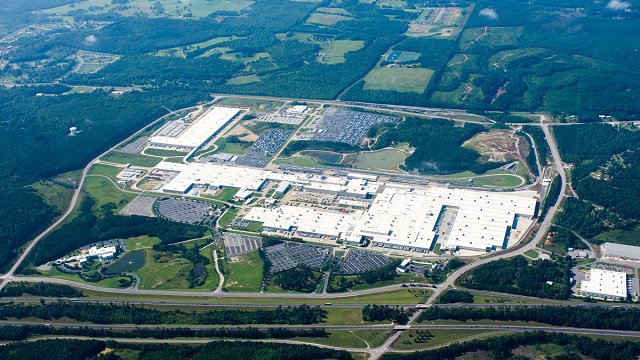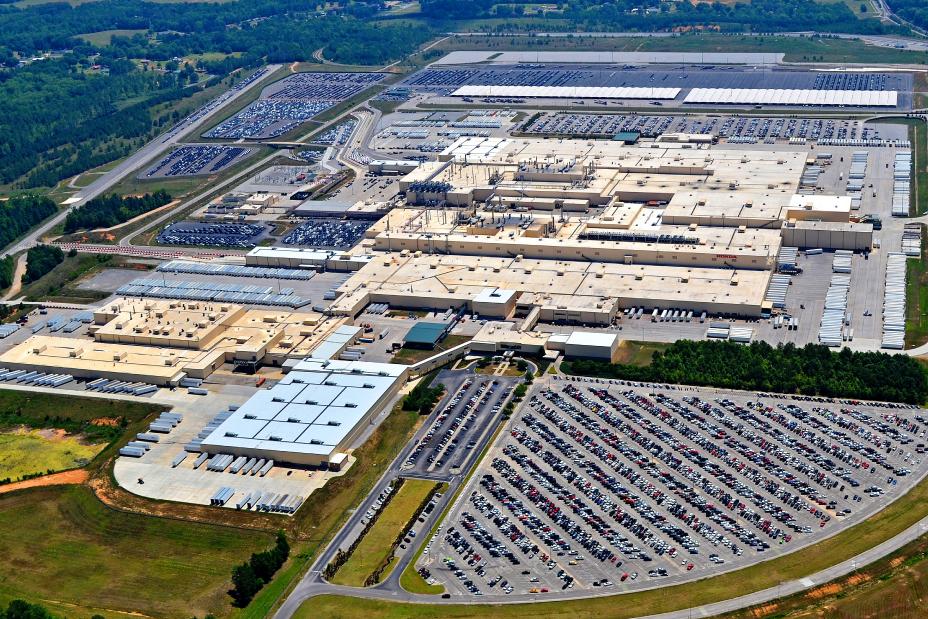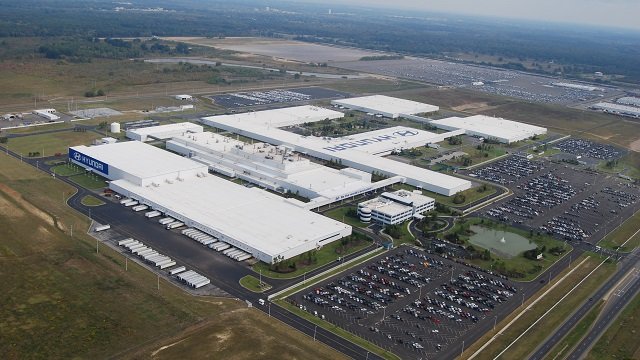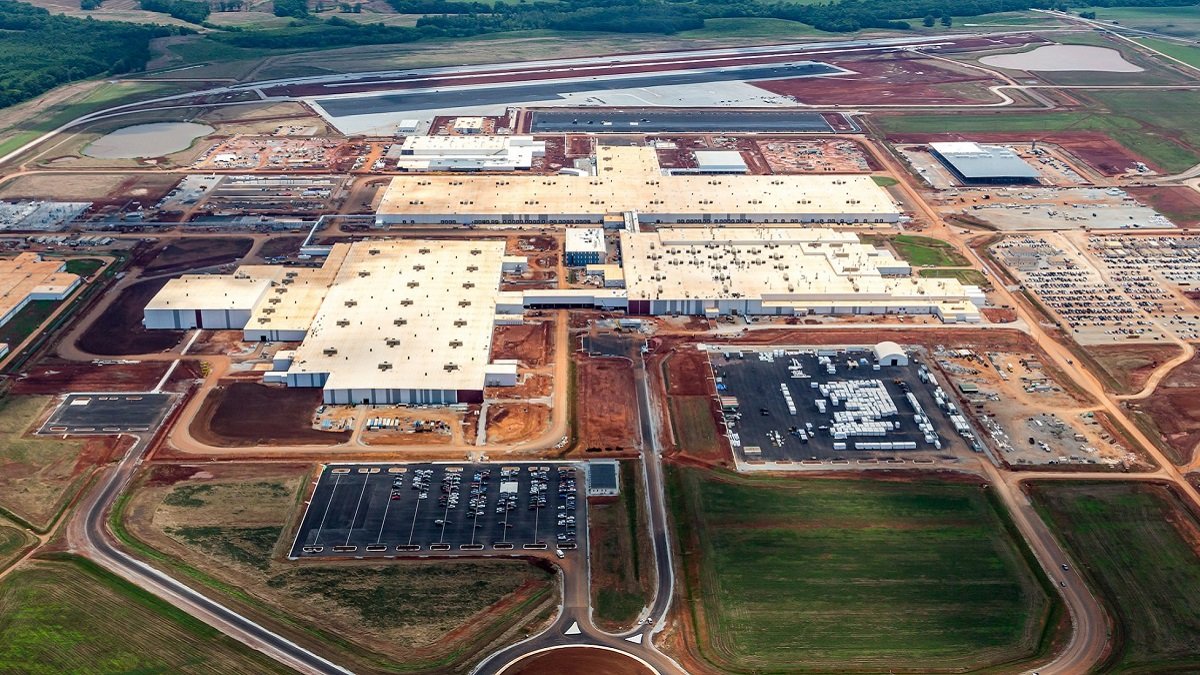The electric vehicle evolution that is taking place in the automotive industry is having a huge effect on Alabama’s economic development efforts.
As the state’s automotive original equipment manufacturers (OEMs) ramp up production of EVs, starting with Mercedes-Benz next year, Alabama has to ensure the suppliers in the state are in a position to make the transition where possible.
“The interesting thing about economic development and what we’re doing at Commerce, is we are always asking that question: ‘What’s next?’,” said Alabama Commerce Secretary Greg Canfield. “If you’re not evolving, you’re dying and that’s exactly what we’re seeing with the automotive industry, is the automotive industry is evolving its technology. That evolution today is focused on the electrification of vehicles.”
Electric vehicles and charging stations part of Alabama’s automotive future from Alabama NewsCenter on Vimeo.
Mercedes-Benz U.S. International (MBUSI) in Tuscaloosa County – which is investing $1 billion preparing for production of EVs – is slated to begin building the EQE and EQS SUVs in 2022, alongside SUVs with conventional and plug-in hybrid drives. Part of that investment is a battery plant being built in Bibb County.
Honda has announced a global plan to be all-electric by 2040 but hasn’t announced specific plans for its Honda Manufacturing of Alabama plant in Lincoln.
Hyundai is investing $7.4 billion globally to build EVs, including its Hyundai Motor Manufacturing Alabama plant in Montgomery.
The $2.3 billion Mazda Toyota Manufacturing plant in Huntsville is set to begin production this year and its first announced vehicle, the Toyota Corolla Cross compact SUV, is not an EV. However, officials have indicated that EVs will be part of the mix at the plant once more models are added and the plant is at full production.
“We’ve got five OEMs in the state of Alabama and all five are investing heavily in the future of the electrification of vehicles,” Canfield said. “So, we definitely see it coming. We anticipate it. We’re working with our OEMs and the supply chain each and every day.”
Alabama Gov. Kay Ivey told economic developers at the Economic Development Association of Alabama summer conference last month that she wants the state to become more involved in all facets of the EV industry.
“Alabama’s automotive industry is clicking on all cylinders,” she said. “We should be leading the research effort to make Alabama the EV leader.”
Ivey approved $16.5 million in bonds for construction of the Smart Communities and Innovation Building on the University of Alabama campus. The building will house the (AMP) Initiative, a collaboration between UA, Alabama Power and MBUSI designed to meet the needs of the EV market and support Alabama’s transportation network.
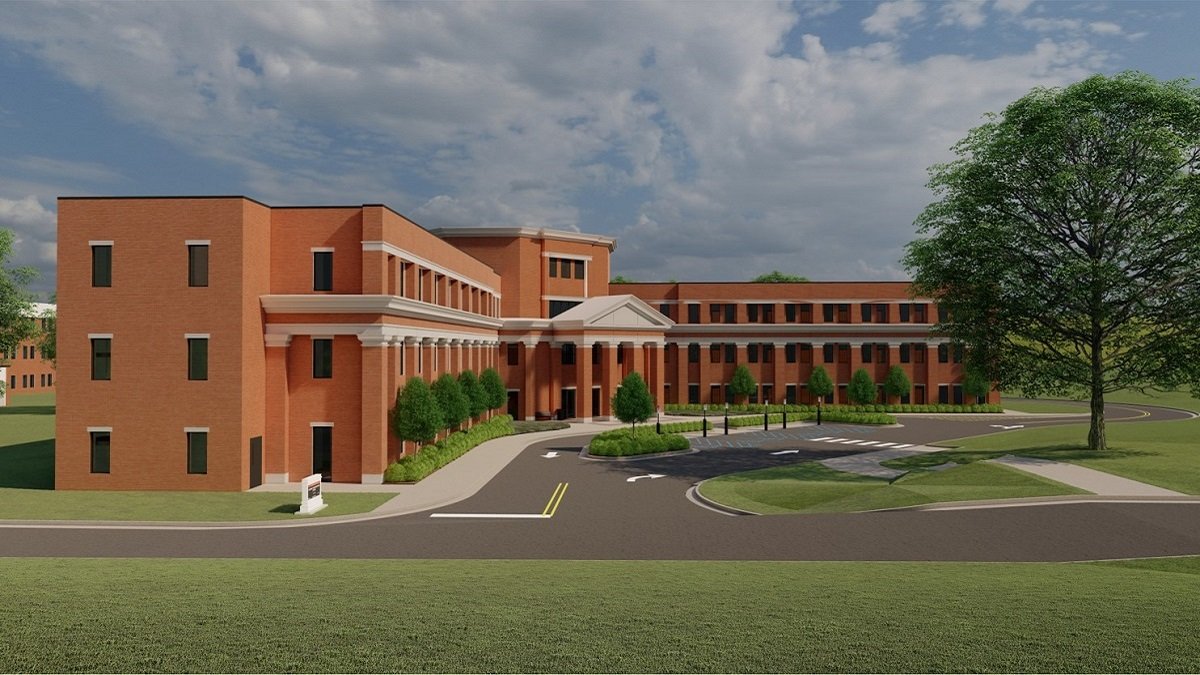
A rendering shows the planned Smart Communities and Innovation Building on the University of Alabama campus. The building will house the Alabama Mobility and Power (AMP) Initiative, designed to meet the needs of the booming electric vehicle market. The initiative grew out of a relationship among UA, Alabama Power and Mercedes-Benz U.S. International. (contributed)
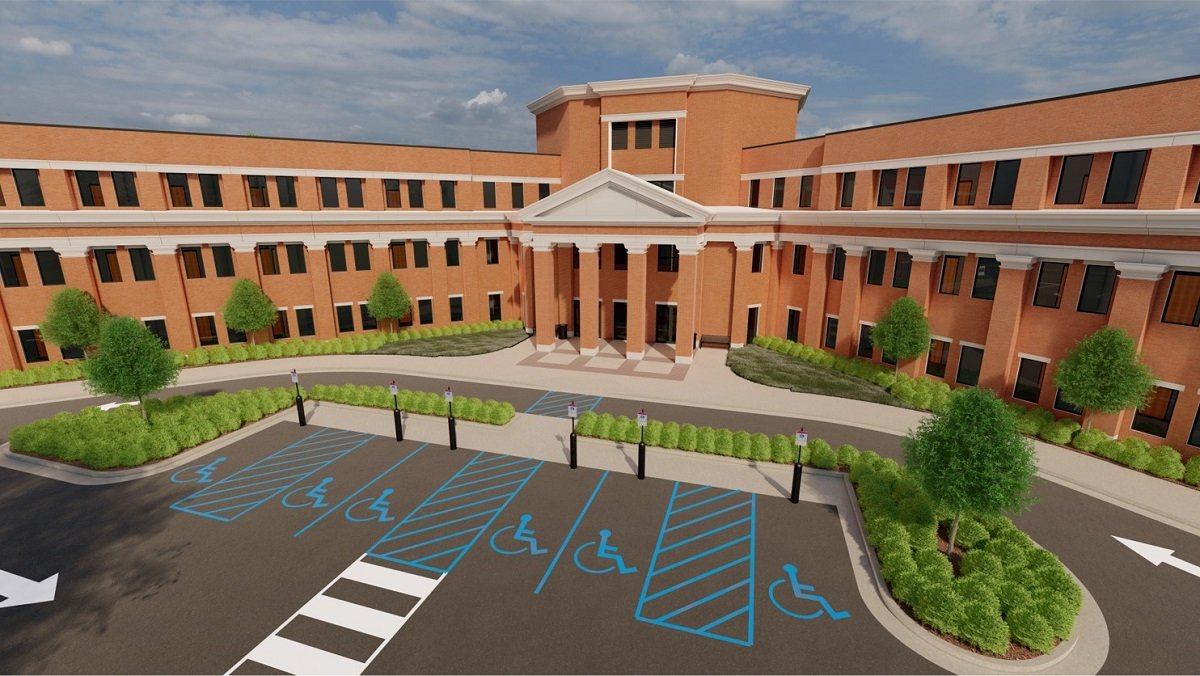
A rendering shows the planned Smart Communities and Innovation Building on the University of Alabama campus. The building will house the Alabama Mobility and Power (AMP) Initiative, designed to meet the needs of the booming electric vehicle market. The initiative grew out of a relationship among UA, Alabama Power and Mercedes-Benz U.S. International. (contributed)
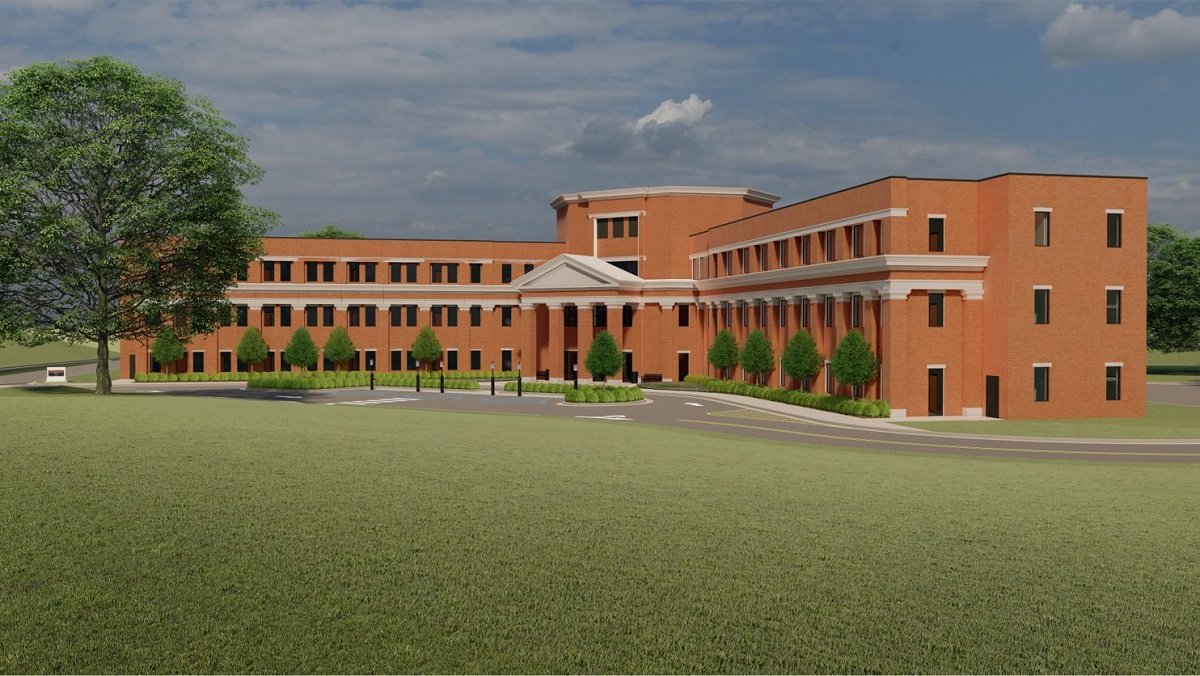
A rendering shows the planned Smart Communities and Innovation Building on the University of Alabama campus. The building will house the Alabama Mobility and Power (AMP) Initiative, designed to meet the needs of the booming electric vehicle market. The initiative grew out of a relationship among UA, Alabama Power and Mercedes-Benz U.S. International. (contributed)
The nation’s first large-scale graphite processing plant for a key element in EV batteries is being built in Coosa County with Westwater Resources’ $124 million Alabama Graphite Products.
Mark Williams, president of Strategic Development Group and a site consultant with expertise in the automotive industry, said while EVs are the wave of the future, it does come with an adjustment as it relates to the hundreds of suppliers and thousands of jobs tied to creating parts of traditional cars and trucks.
“EVs have fewer parts,” Williams told Alabama economic developers last month. “It’s not just a one-for-one trade-off with an internal combustion engine.”
Williams said changing consumer sentiment, increasing government support and enhanced technology are giving way to an acceleration toward EVs. EVs are expected to reach 3% of the U.S. automotive market share in new sales this year and that number is expected to grow to as much as 25% by 2030, according to some projections.
President Joe Biden signed an executive order this month calling for 50% of all new vehicles sold in the U.S. in 2030 to be “zero-emission vehicles,” which could mean battery electric, plug-in hybrid electric or fuel-cell electric vehicles. Biden’s order aims for an industry standard of 52 miles per gallon for all new vehicles by 2026.
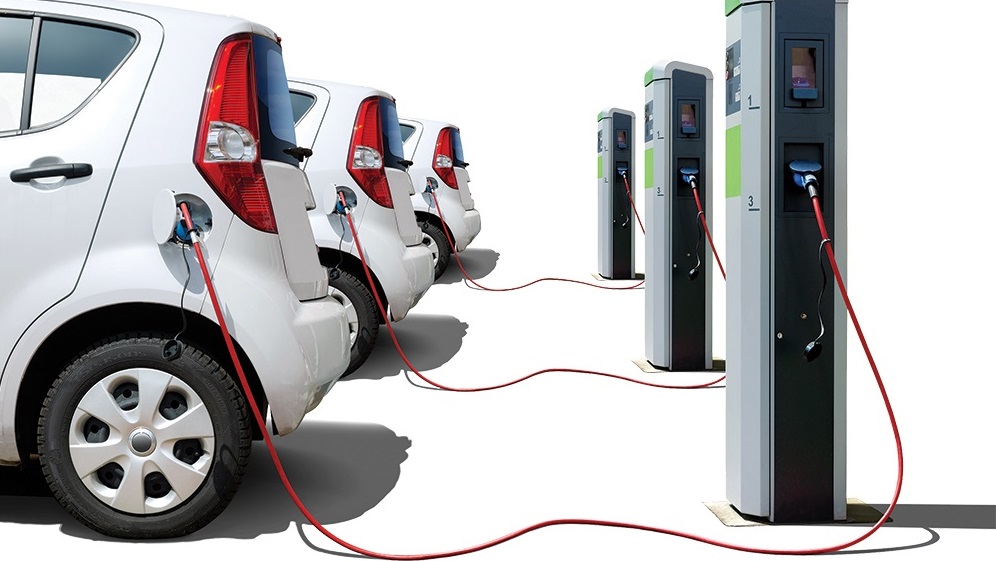
Bharat Balasubramanian, former head of research for Mercedes-Benz and an engineering professor at the University of Alabama, said EV production should follow consumer behavior and that will be largely dictated by access to technology.
“The goal for miles per gallon is achievable, but the goal for 50% of vehicles sold in 2030 is way too ambitious because it’s trying to influence customer practices,” Balasubramanian said. “The unspoken challenge is the electric grid network to our homes is often too low-powered for electric vehicles and cannot do fast charging, while roadside fast charging stations are too expensive at peak times.”
The availability of fast charging stations is one of the main limits to the growth of EVs, surveys show.
The $1.2 trillion infrastructure bill the U.S. Senate passed today includes $7.5 billion to expand charging stations throughout the country.
The Alabama Department of Economic and Community Affairs (ADECA) has been tasked with expanding charging stations in Alabama.
ADECA Director Kenneth Boswell said the most recent EV charging station expansion project in the state had $4.2 million to spend and $18.2 million worth of requests.
Boswell said those charging stations will go be along Interstates 459 and 20 and will be stations that charge in 20 minutes or less to cut down on putting together a statewide plan for building out EV charging stations.
While the automotive industry continued to perform well during the pandemic, some production has been lost due to a global shortage in the supply chain – specifically in the microchips used in modern cars and trucks.
Canfield said sourcing microchips locally should be part of the industry’s long-term strategy.
“We’re very interested in improving and increasing the manufacturing capacity in the U.S. because part of the problem is the weakness in the supply chain is so much of this is sourced outside of the U.S.,” Canfield said. “We would very much welcome and entertain any project that might have to do with the production of semiconductor chips in the state of Alabama.”
